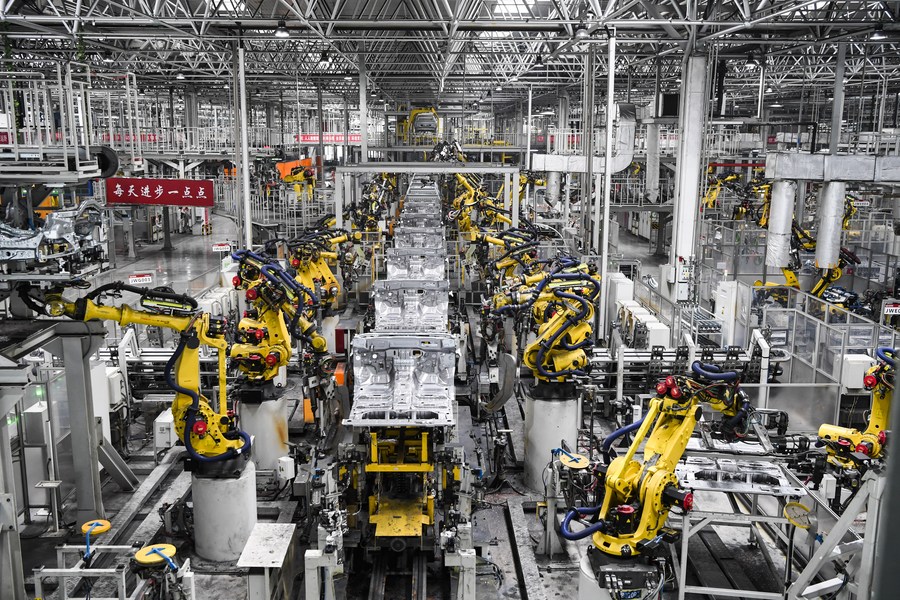 Bridging News
Bridging News
Chongqing's Industries Should Undergo Examination for Their Advanced Technology Integration | Insights
Chongqing - The notion of "new quality productive forces" emerged as a prominent theme in this year's government work report, quickly capturing the attention and sparking significant interest across diverse sectors.
In an exclusive interview with Bridging News, Mars Wei, general manager of Cushman & Wakefield in Chongqing, offered valuable insights into this concept and its application in Chongqing, a significant manufacturing base in Southwest China.

Mars Wei is the general manager of Cushman & Wakefield in Chongqing. (Photo/Cushman & Wakefield)
Reduce production costs while elevating output quality
Wei believes that cultivating new quality productive forces requires a balanced integration of innovative and traditional productive sectors. Such an approach entails a comprehensive examination of Chongqing's varied industries and the application of advanced technologies to each.
On the one hand, as a significant manufacturing hub, Chongqing should leverage its strengths in key industries such as automotive, electronics, and advanced materials. The goal is to elevate these sectors to higher levels of sophistication, automation, and environmental sustainability.
On the other hand, the city must prioritize strategic, emerging, and futuristic industries, fostering innovation and creating new economic growth engines.

An intelligent production base of the Great Wall Motors is in the Yongchuan District, Chongqing. (Photo/Xinhua)
Wei highlights that Chongqing's emphasis on the "33618" modern manufacturing cluster system, which focuses on new energy, smart manufacturing, intelligence, and software services, exemplifies the essence of new quality productive forces.
For instance, by integrating next-generation information technologies into traditional industries, businesses can advance toward smart manufacturing, industrial internet adoption, and big data analytics. This strategic move seeks to reduce production costs while elevating output quality.
Use leading manufacturing firms as a magnet
Wei delineated several strategies for businesses to cultivate new quality product forces.
At the heart of the approach lies positioning the enterprise as a catalyst for innovation and technological progress. He advocates for companies prioritizing scientific and technological innovation to upgrade crucial production technologies and models.
A people-centered strategy is crucial for attracting and nurturing scientific and innovative talent. Wei highlights the need to enhance talent acquisition, refine support services for talent, creating a dynamic environment for talent growth.
Creating a supportive ecosystem for new quality product forces enhances scientific and technological productivity. Wei suggests developing a strategic framework, establishing technology exchange platforms, and improving science and technology infrastructure to position Chongqing as a key player in global advanced manufacturing.
He also suggests using leading firms like those in the manufacturing sector as a magnet to attract related enterprises, both upstream and downstream, to complete industrial chains and enhance productivity and innovation.
 Related Stories
Related Stories